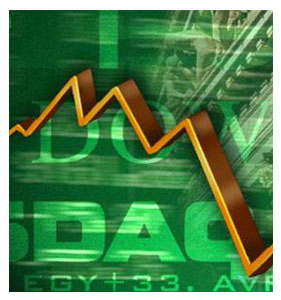Stocks
Brazil stocks fall on risk aversion, real weakens
 Brazilian stocks fell in early Thursday trade, as news that Dubai was moving to restructure its biggest corporate debtor sent investors across the world scurrying for cover from riskier assets.
Brazilian stocks fell in early Thursday trade, as news that Dubai was moving to restructure its biggest corporate debtor sent investors across the world scurrying for cover from riskier assets.
The benchmark Bovespa index .BVSP slid 1.24 percent to 67,077.91 in morning trading, a day after racking up its best close in 17 months.
Brazil's currency, the real (BRBY), weakened 0.64 percent to 1.737 per dollar. The greenback gained against a basket of major currencies .DXY as investors turned to the U.S. currency, typically seen as a safe haven in times of turmoil.
Dubai will ask creditors of two of its flagship firms for a standstill on billions of dollars of debt as a start in restructuring Dubai World, the conglomerate which spearheaded the emirate's breakneck growth.
That decision sparked concerns about the financial health of the Gulf region, with potential exposure by banks around the world another worry.
With U.S. markets closed for the Thanksgiving holiday on Thursday, the news gained even more prominence.
The announcement shook global markets. Shares in banks, builders and companies part-owned in the Middle East fell around the world, investors sought out the safety of government bonds and gold climbed to a record high before retreating on the stronger dollar. and
"This (decline) is happening around the world," said Mirela Rappaport, a partner at InvestPort, a Sao Paulo-based asset management company.
Combined with the index's 10.4 percent rise so far this month through Wednesday's close, which could encourage investors to book profits, the news will likely generate short-term volatility, she said.
"But we still see potential for growth in the index in the long-term," she added, noting largely good corporate results recently, expectations for growth in the Brazilian economy next year and the expectation of continued low interest rates abroad for a while yet, fueling the carry trade.
In the stock index, state-controlled energy company Petrobras (PETR4.SA) sank 1.29 percent to 38.94 reais, leading losses.
Mining giant Vale (VALE5.SA), the world's largest iron ore producer, lost 1.34 percent to 42.79 reais.
The two are the most heavily-weighted stocks in the index.
Banks also declined. Itau Unibanco (ITUB4.SA), Brazil's largest private-sector bank, lost 1.78 percent to 38.10 reais, Banco do Brasil (BBAS3.SA), Latin America's largest bank by assets, slid 0.94 percent to 30.54 reais and Bradesco (BBDC4.SA) moved down 1.05 percent to 35.97 reais.
Shares of Banco Panamericano (BPNM4.SA) tumbled 3.76 percent to 8.95 reais. The bank said on Thursday that its main shareholder was in talks to sell a minority stake to state-owned bank Caixa Economica Federal. [ID:nSPG002610]
Yields on Brazilian interest rate futures contracts <0#DIJ:> surged as inflation in Brazil quickened more than expected in the month to mid-October on food, fuel and transportation prices.
The yield on the contract due January 2011 DIJF1 rose to 10.29 percent from 10.19 percent. The yield on the contract due July 2010 DIJN0 rose to 9.13 percent from 9.06 percent.
Both were among the morning's most highly-traded contracts.
Investors use the contracts to bet on trends in the country's benchmark interest rate, the Selic, currently at a record-low 8.75 percent.
Central bank policymakers use an inflation target as a guide in setting interest rates. Investors see higher inflation as potentially prompting policymakers to hike rates sooner rather than later.
(Published by Reuters - November 26, 2009)